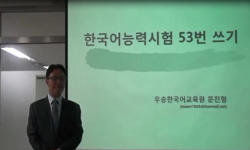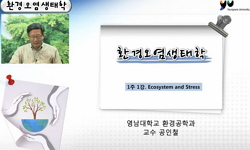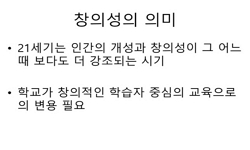This study is a basic work for conceptualizing the Korean language ability which is a key concept of Korean language education by adopting an ecological perspectives. Especially it is focusing on the “creativity” domain of Korean language ability ...
http://chineseinput.net/에서 pinyin(병음)방식으로 중국어를 변환할 수 있습니다.
변환된 중국어를 복사하여 사용하시면 됩니다.
- 中文 을 입력하시려면 zhongwen을 입력하시고 space를누르시면됩니다.
- 北京 을 입력하시려면 beijing을 입력하시고 space를 누르시면 됩니다.

생태학 관점의 국어 능력 개념화 방향 = A Conceptualization Way of Korean Language Ability on Ecological Perspectives: Focused on “Creativity”
한글로보기https://www.riss.kr/link?id=A101979716
- 저자
- 발행기관
- 학술지명
- 권호사항
-
발행연도
2014
-
작성언어
Korean
- 주제어
-
KDC
700
-
등재정보
KCI등재
-
자료형태
학술저널
- 발행기관 URL
-
수록면
111-135(25쪽)
-
KCI 피인용횟수
6
- 제공처
-
0
상세조회 -
0
다운로드
부가정보
다국어 초록 (Multilingual Abstract)
This study is a basic work for conceptualizing the Korean language ability which is a key concept of Korean language education by adopting an ecological perspectives. Especially it is focusing on the “creativity” domain of Korean language ability based on the “sustainability literacy” in Ecology. It has a meaning that it opens a new way of conceptualization of Korean creativity with related study, Ecology. Concretely, the sustainability literacy’s core thesis is “emergence”. This emergence in education discourses includes “contexts, guided learning, and complex activity”. It originated from a fundamental relationship between human and environment. This study systematizes emergence to “various linguistic problems, environments with rich semiotic sources, perception and integration, guided activity, and the whole problem-solving”. And these five elements fuse with Korean creativity’s existing elements. So Korean creativity based on sustainability literacy is re-conceptualized followed below. “Korean creativity is the whole problem-solving ability with creativity thoughts responding to various language environments. This ability emerges from an integrated Korean language activity guiding to the whole problem-solving from perceiving problems in environments with rich semiotic sources.”
참고문헌 (Reference)
1 박이문, "환경철학" 미다스북스 2002
2 김규훈, "텍스트 중심 문법교육의 내용 구성 연구 : 생태학 기반의 사회문화적 소통을 근간으로" 동국대학교 대학원 2014
3 윤여탁, "창의성의 재개념화와 국어교육의 지향과 과제" 한국국어교육학회 (98) : 185-206, 2014
4 최홍원, "창의성에 대한 이해 지평의 확대와 국어교육적 재조명" 한국국어교육학회 (89) : 461-484, 2012
5 김창원, "창의성 중심의 국어과 교육과정 구성 방향" 국어교육학회 (18) : 97-128, 2003
6 이경화, "창의성 신장을 위한 국어과 교수-학습 분석" 청람어문교육학회 (26) : 25-56, 2003
7 이동원, "창의성 교육의 실천적 접근" 교육과학사 2009
8 김영채, "창의력의 이론과 개발" 교육과학사 2010
9 문용린, "창의·인성 교육 총론" 한국창의과학재단 2010
10 박수자, "창의 인성 계발과 국어과 교육의 과제" 한국어교육학회 (140) : 31-51, 2013
1 박이문, "환경철학" 미다스북스 2002
2 김규훈, "텍스트 중심 문법교육의 내용 구성 연구 : 생태학 기반의 사회문화적 소통을 근간으로" 동국대학교 대학원 2014
3 윤여탁, "창의성의 재개념화와 국어교육의 지향과 과제" 한국국어교육학회 (98) : 185-206, 2014
4 최홍원, "창의성에 대한 이해 지평의 확대와 국어교육적 재조명" 한국국어교육학회 (89) : 461-484, 2012
5 김창원, "창의성 중심의 국어과 교육과정 구성 방향" 국어교육학회 (18) : 97-128, 2003
6 이경화, "창의성 신장을 위한 국어과 교수-학습 분석" 청람어문교육학회 (26) : 25-56, 2003
7 이동원, "창의성 교육의 실천적 접근" 교육과학사 2009
8 김영채, "창의력의 이론과 개발" 교육과학사 2010
9 문용린, "창의·인성 교육 총론" 한국창의과학재단 2010
10 박수자, "창의 인성 계발과 국어과 교육의 과제" 한국어교육학회 (140) : 31-51, 2013
11 김시정, "융복합 교육의 양상에 대한 국어교육적 접근" 국어교육학회 (43) : 125-153, 2012
12 이삼형, "언어적 창의력 프로그램 개발 연구" 국어교육학회 (19) : 449-482, 2004
13 제민경, "언어 창의성 발현을 위한 교육적 체계의 구성 방향" 한국어교육학회 (143) : 311-348, 2013
14 Valery, P., "신체의 미학" 현대미학사 1997
15 이성영, "생태학적으로 타당한 독서 교육을 위하여" 한국초등국어교육학회 (22) : 123-156, 2003
16 박인기, "생태학적 국어교육의 현실과 지향" 한국초등국어교육학회 (22) : 1-36, 2003
17 McIntosh, R. P., "생태학의 배경" 아르케 1999
18 표경현, "생태학 관점으로부터의 소그룹 토론 활동 이해: 출현, 유도성 개념을 중심으로" 한국외국어교육학회 19 (19): 151-180, 2012
19 문현진, "생태적 사회과 교육의 방향 탐색" 한국사회교과교육학회 15 (15): 41-63, 2008
20 박육현, "생태언어학" 한국문화사 1999
21 김혜숙, "상호문화적 국어교육의 교수-학습 방향 모색 - 다문화 사회의 통합형 문법교육을 위하여" 한국국어교육학회 (93) : 5-46, 2012
22 김영채, "사고력: 이론개발과 수업" 교육과학사 1998
23 Steve, J., "미래와 진화의 열쇠, 이머전스" 김영사 2002
24 노명완, "미래사회에서의 전문활동과 국어능력" 한국어교육학회 (122) : 1-22, 2007
25 이광우, "미래 한국인의 핵심 역량 증진을 위한 초⋅중등학교 교육과정 비전 연구(II) -핵심 역량 영역별 하위 요소 설정을 중심으로-" 한국교육과정평가원 2008
26 서영진, "미래 사회 대비 국가 수준 교육과정 방향 탐색 – 국어" 한국교육과정평가원 2013
27 김상욱, "문해력, 국어능력, 문학능력" 한국초등국어교육학회 (46) : 41-69, 2011
28 김욱동, "문학 생태학을 위하여" 민음사 1998
29 이동승, "독일 시의 생태시" 25 : 1990
30 이상아, "다큐멘터리의 언어적 창의성 연구 - ≪지식채널e≫를 중심으로 -" 국어교육연구소 (31) : 169-197, 2013
31 김미혜, "국어적 창의성의 구성 요소에 관한 연구" 국어교육학회 (20) : 333-356, 2004
32 신명선, "국어적 창의성의 개념 정립에 대한 연구-정서 창의성의 도입을 중심으로-" 국어교육학회 (35) : 301-329, 2009
33 정혜승, "국어적 창의성 계발을 위한 교재 구성 방안 연구" 한국초등국어교육학회 (24) : 125-164, 2004
34 왕문용, "국어능력과 삶의 질" 한국어교육학회 (113) : 79-102, 2004
35 박수자, "국어교육학과 사고" 역락 2007
36 김은성, "국어과 창의성 교육의 기본 개녕" 한국어교육학회 (113) : 175-202, 2004
37 김규훈, "국어과 창의 · 인성 교육의 실행 원리 탐색 ― 국어과 핵심 역량의 개념화를 바탕으로 ―" 한국어교육학회 (140) : 409-448, 2013
38 이천희, "국어 능력의 개념 정립을 위한 시론" 한국어교육학회 (118) : 5-30, 2005
39 교육과학기술부, "교육과학기술부 고시 2012-14호 [별책 5], 국어과 교육과정"
40 박순경, "교육과정 총론 개선을 위한 기초 연구" 한국교육과정평가원 2014
41 방인태, "道德的 人間 育成과 國語 能力" 한국어교육학회 (121) : 3-3, 2006
42 Stibbe, A., "Words and worlds: New Directions for Sustainability Literacy" 2 (2): 1-11, 2008
43 Lier, V. L., "The ecology and semiotics of language learning" Kluwer Academic Publishers 2004
44 Gibson, J. J., "The concept of affordances, Perceiving, Acting, and Knowing" 67-82, 1979
45 Maturana, H., "The Tree of Knowledge" Shambhala 1987
46 Hare, M., "The Language of Morals" Oxford Clarendon Press 1952
47 Bloom, B. S., "Taxonomy of educational objectives: the classification of educational goals, Handbook 1: Cognitive domain" DEWEY 1956
48 Allee, W. C., "Principles of Animal Ecology" Saunders 1949
49 김남희, "PISA 읽기 소양과 21세기 국어 능력" 한국어교육학회 (138) : 41-71, 2012
50 Barton, D., "Literacy - An introduction to the ecology of written language" Blackwell 2007
51 Colucci‐Gray, L., "From scientific literacy to sustainability literacy: an ecological framework for education" 90 (90): 227-252, 2006
52 Bronfenbrenner, U., "Environments in developmental perspectives, Measuring environment across the life span: Emerging methods and concepts" American Psychological Association Press 3-28, 1999
53 Dodson, S. I., "Ecology" Oxford University Press 1998
54 Orr, D., "Ecological literacy - Education and transition to a postmodern world-" State University of New York Press 1992
55 Marzano, R. J., "Dimensions of Thinking: A Framework for Curriculum and Instruction" The Association for Supervision and Curriculum Development 1988
56 Bayer, B. K., "Developing a thinking skills program" Allyn and Bacon 1988
57 Gardner, H., "Creativity" Simon Schuster 28-47, 1993
58 Rhodes, M., "An Analysis of Creativity" 42 : 305-310, 1961
59 Anderson, L. W., "A taxonomy for learning, teaching, and assessing: A revision of Bloom’s taxonomy of educational objectives" Longman 2001
동일학술지(권/호) 다른 논문
-
중국어 모어 화자의 한국어 종성 발음 오류에 관한 연구
- 한국언어문화학회
- 박초롱 ( Cho Rong Park )
- 2014
- KCI등재
-
- 한국언어문화학회
- 문선영 ( Seon Yeong Mun )
- 2014
- KCI등재
-
- 한국언어문화학회
- 임근석 ( Geun Seok Lim )
- 2014
- KCI등재
-
- 한국언어문화학회
- 강상대 ( Kang Sang Dae )
- 2014
- KCI등재
분석정보
인용정보 인용지수 설명보기
학술지 이력
| 연월일 | 이력구분 | 이력상세 | 등재구분 |
|---|---|---|---|
| 2027 | 평가예정 | 재인증평가 신청대상 (재인증) | |
| 2021-01-01 | 평가 | 등재학술지 유지 (재인증) |  |
| 2018-01-01 | 평가 | 등재학술지 유지 (등재유지) |  |
| 2015-01-01 | 평가 | 등재학술지 유지 (등재유지) |  |
| 2011-01-01 | 평가 | 등재학술지 유지 (등재유지) |  |
| 2008-01-01 | 평가 | 등재학술지 선정 (등재후보2차) |  |
| 2007-01-01 | 평가 | 등재후보 1차 PASS (등재후보1차) |  |
| 2006-01-01 | 평가 | 등재후보학술지 유지 (등재후보2차) |  |
| 2005-01-01 | 평가 | 등재후보 1차 PASS (등재후보1차) |  |
| 2003-01-01 | 평가 | 등재후보학술지 선정 (신규평가) |  |
학술지 인용정보
| 기준연도 | WOS-KCI 통합IF(2년) | KCIF(2년) | KCIF(3년) |
|---|---|---|---|
| 2016 | 0.23 | 0.23 | 0.22 |
| KCIF(4년) | KCIF(5년) | 중심성지수(3년) | 즉시성지수 |
| 0.24 | 0.29 | 0.471 | 0.18 |




 KISS
KISS






